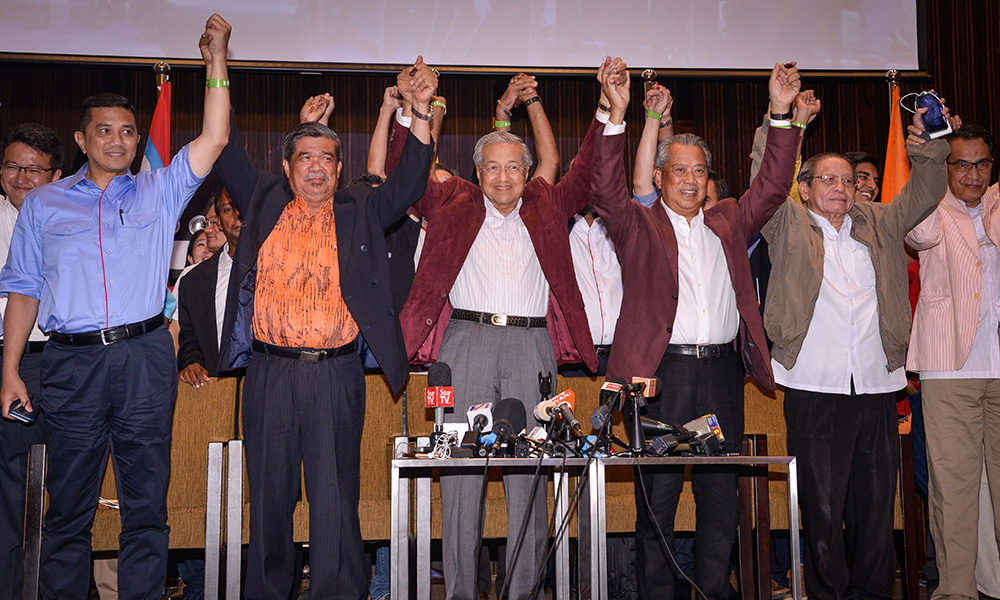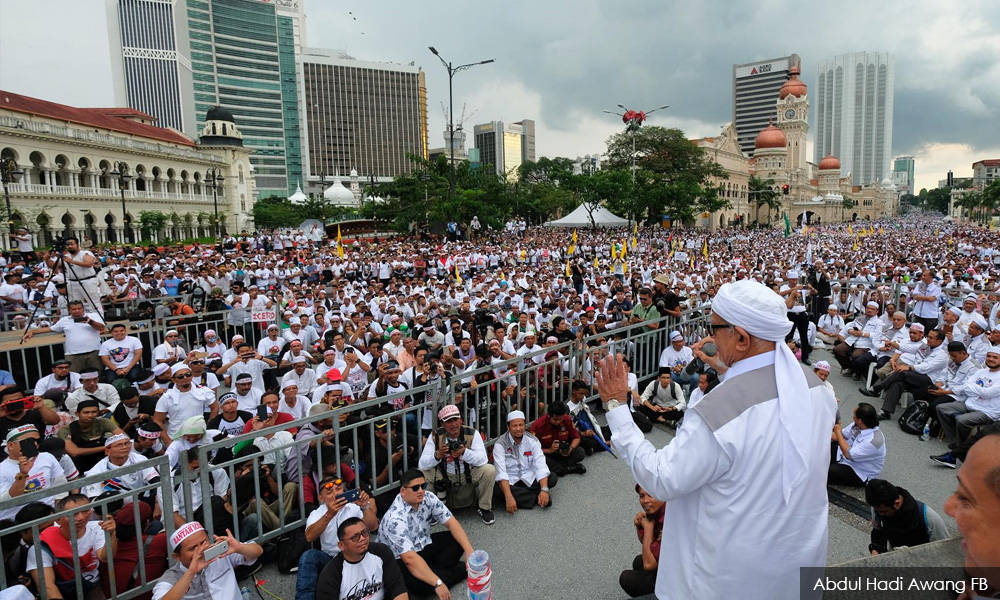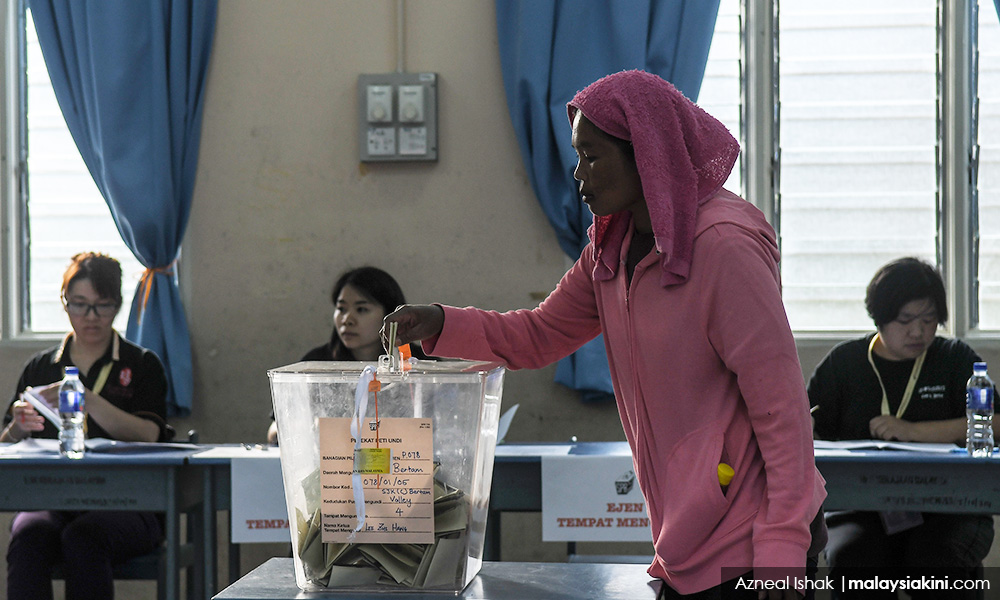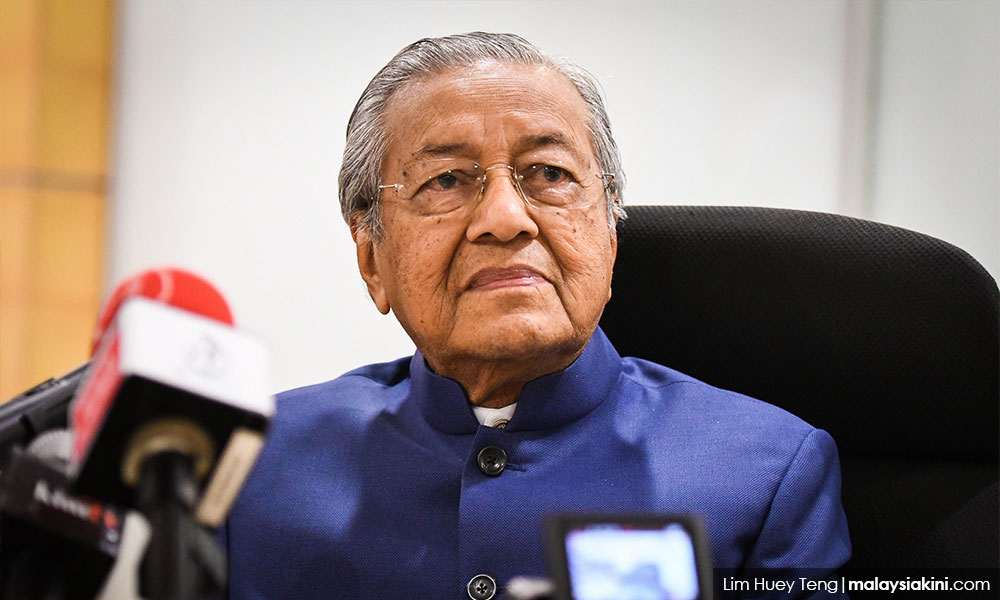
When I first heard about how the Pakatan Harapan government’s popularity rating was only 46 percent, I had sudden anxiety. Supporting the Harapan government feels like holding onto a tight rope sometimes but the risk of collapse becomes higher when others also holding on give up.
And now when more and more people withdraw their support for the Harapan government, it is worrying. My anxiety stems from knowing that the alternative of an Umno-PAS government would be worse. That would be a government that is comfortable with corruption, abuse of power, lies and deception. Most of all, that would be a government that would be comfortable to pay the price for a nation deeply divided by race and religion in the pursuit of consolidation of power.
The fear of an Umno-PAS return is exacerbated when I know that the current Harapan government is not supported by the people. While the withdrawal of support for Harapan by no means indicates a correlative increase in support for Umno-PAS, there remains a tendency for that to happen.
A mob that is frustrated with the government would vote for any opposition party that is credible if it means halting their bleeding.

My anxiety slowly dissolved into a sense of urgency to investigate what went wrong with the government and seek solutions to resolve them. The few hypotheses that have been touted include failing to address the cost of living issue, lack of direct communication on government successes, slowness in reforms and mass defections of lawmakers from Umno to Harrapan.
Once we have identified the hypotheses, we can then further apply some humility in conceding our shortcomings and devising plans to address these problems while pressing forward.
But Dr Mahathir Mohamad said the next general election is still far away. He said that the assessment during the previous election was significantly different from a current survey about popularity. He also said it was normal for a government to lose popularity after a period of time.
I generally agree with this. Especially in the case of the unprecedented euphoria in the months succeeding the general election. The dramatic fall in popularity of the Harapan government could be seen as a natural readjustment or normalisation.
While I do agree that assessments voters make during a general election are different from those they make during a popularity survey, I do not agree that popularity surveys do not matter. And I also do not agree that the next general election is that far away that it makes a one-year assessment trivial.

Voters normally would have made up their minds a few months or even a year before a general election. A two-week campaign period has little effect in changing the minds of voters; political campaigns only serve to push people out to vote with emotionally-charged sentiments.
Everyone can concede that every vote is largely an emotional choice. That emotional choice is shaped by the cumulative events perceived by each voter which tilts their inclination from one party over the other. That means the cumulative events over the past year or two preceding a general election matter a lot in helping voters to decide.
If we disregard voter dissatisfaction over the Harapan's government’s first-year performance and if we carry this nonchalance into the second year and beyond, then we are waddling into risky territory. Voters start making their minds up during that period.
That is why I also do not think that the next general election is that far away. Because voters do not make up their minds on the day of the 15th general election - they make up their minds in the months and even years before that.
Notwithstanding this, I find Mahathir’s attitude helpful. His old age has given him the perceptivity to take a long view on things - to see this lack of popularity in light of history and not be befuddled by what he deems a temporary setback.

Mahathir has the blessings of a long life with his memory of the past richer than what one can absorb from a history textbook. Seeing life in the light of history does reduce anxiety since there is a quiet confidence to carry on through the hard times.
He is confident in saying that before the next general election comes, “we will do a lot of things”. This confidence provides an emotional shield against any anxiety of the present.
Mahathir must have known that like the European revolutions of the 18th century, a government like Najib Abdul Razak’s that taxed the poor and visibly enriched the elite wouldn’t last.
Mahathir must also know that absolute monarchies have inevitably given way to the will of the masses. Taking a long view of history gives you quiet confidence against the powerful and it provides you with an emotional shield to carry on.
I appreciate this emotional shield because I need it for a government that is losing popularity by the day.
JAMES CHAI works at a law firm. His voyage in life is made less lonely with a family of deep love, friends of good humour and teachers of selfless giving. This affirms his conviction in the common good of people: the better angels of our nature. E-mail him at jameschai.mpuk@gmail.com - Mkini



No comments:
Post a Comment
Note: Only a member of this blog may post a comment.